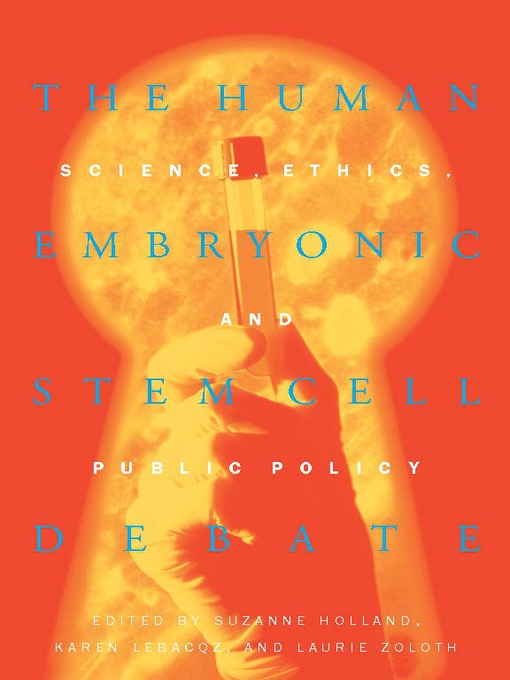Human embryonic stem cells can divide indefinitely and have the potential to develop into many types of tissue. Research on these cells is essential to one of the most intriguing medical frontiers, regenerative medicine. It also raises a host of difficult ethical issues and has sparked great public interest and controversy.This book offers a foundation for thinking about the many issues involved in human embryonic stem cell research. It considers questions about the nature of human life, the limits of intervention into human cells and tissues, and the meaning of our corporeal existence. The fact that stem cells may be derived from living embryos that are destroyed in the process or from aborted fetuses ties the discussion of stem cell research to the ongoing debates on abortion. In addition to these issues, the essays in the book touch on broader questions such as who should approve controversial research and what constitutes human dignity, respect, and justice. The book contains contributions from the Ethics Advisory Board of the Geron Coroporation; excerpts from expert testimony given before the National Bioethics Advisory Commission, which helped shape recent National Institutes of Health policy; and original analytical essays on the implications of this research.
- Available now
- New eBook additions
- New kids additions
- New teen additions
- Most popular
- Try something different
- Manga to Read (or Re-Read)
- Elections, Coups, & Sociopolitical Upheaval
- Celebrating Indigenous Peoples
- Manga
- See all
- Available now
- New audiobook additions
- New kids additions
- New teen additions
- Most popular
- Try something different
- See all


